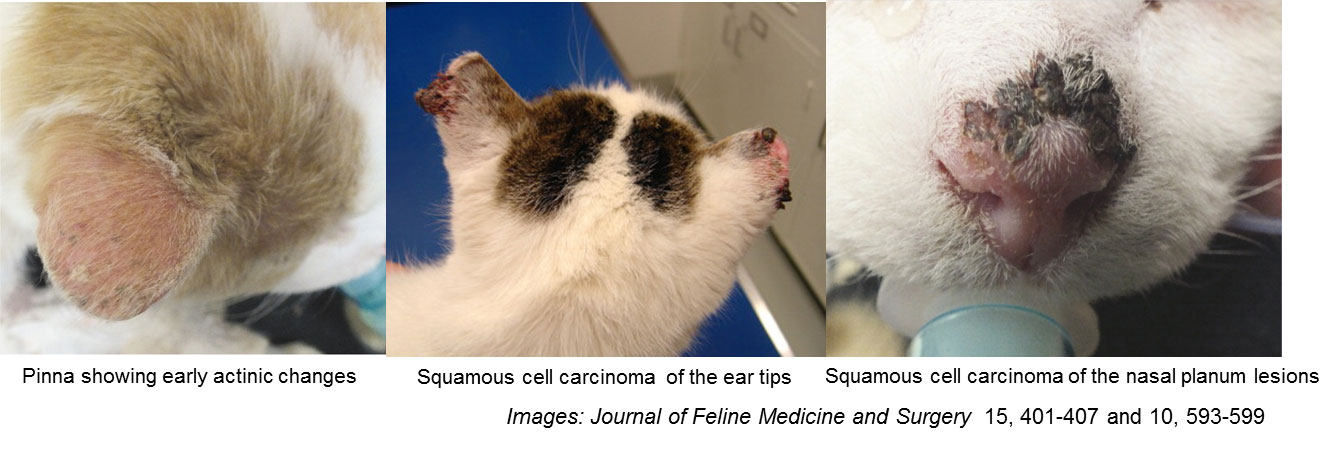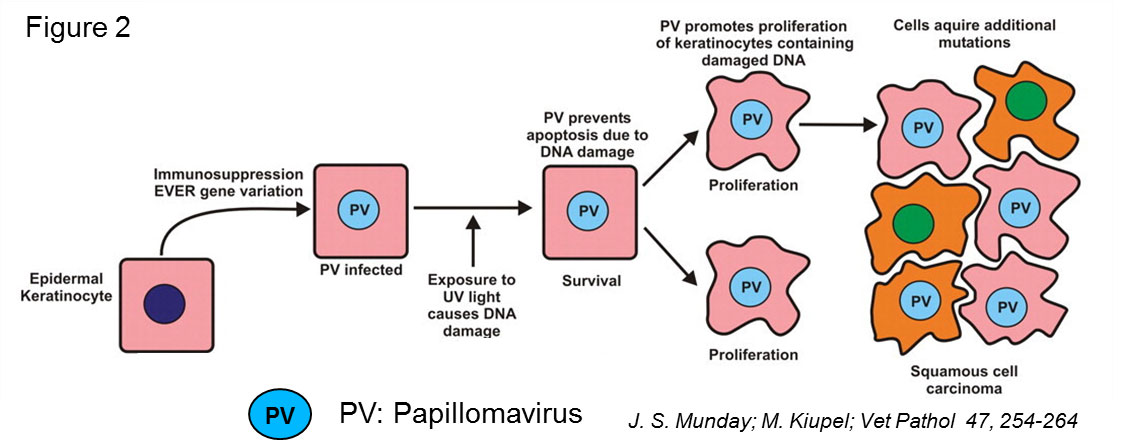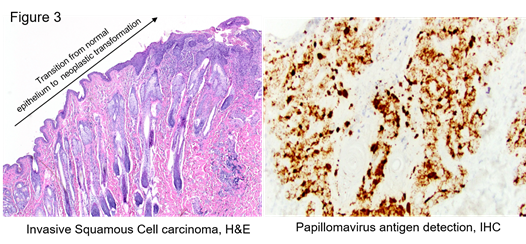
March 2018
Cutaneous Squamous Cell Carcinoma in Cats: Associated Factors
By Dr. Charan Ganta
Squamous Cell Carcinoma in Cats
Cutaneous squamous cell carcinoma (SCC) in cats is one of the most common malignant skin tumors with an incidence rate of 15 to 48%. The wide range in incidence is due to marked variability in reported geographical distribution in these cats. Lesions often present on the nasal planum, eyelids and ear tips, which are areas with minimal hair (Figure 1). There is no breed predilection, but often short-haired cats and those 5 years and above are more prone. It has been shown that white and piebald ventral coat color cats have the highest incidence of SCC, with white cats being 13 times more prone to invasive cutaneous SCC.

|
Associated Factors in Pathogenesis
It is well documented in both humans and cats that in the majority of cases (80% in cats) UV light plays an important role in the pathogenesis of cutaneous SCC. A mutation in the p53 tumor suppressor gene was demonstrated in about 53% of cutaneous SCCs in cats. In addition, feline papillomavirus 2 was detected in 80% of the SCCs in cats, suggesting a possible associated role of feline papillomavirus in causing SCC (Figure 2).

|
Biopsy and Histopathology
A definitive diagnosis of squamous cell carcinoma can only be achieved through a surgical biopsy of the skin lesion. Characteristic proliferation and invasion of dysplastic squamous epithelial cells into the dermis is diagnostic. An association of papillomavirus with the neoplasm can be detected by immunohistochemistry (Figure 3) or PCR.

|
Prognosis
Squamous cell carcinoma is often a locally infiltrative neoplasm that rarely undergoes metastasis, hence a complete surgical excision of the neoplasm with clean surgical margins of 0.5 to 1 cm offers a good prognosis. Limiting exposure to UV light will significantly decrease the incidence.
For questions on various available treatment options, please call KSVDL to setup a consult with one of the oncologists at the Veterinary Health Center, KSUCVM. Phone: 785-532-5650 or email: clientcare@vet.k-state.edu
For any additional questions and references related to this report, phone: 785-532-5650 or email: clientcare@vet.k-state.edu